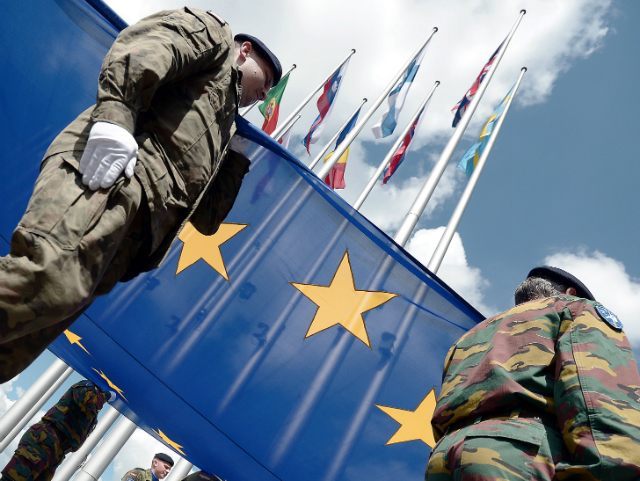The European Union (EU) is going through an “existential crisis” that can only be solved through more military integration, Turkish accession and the creation of a “true union”, EU chiefs have said.
In a document on the political union’s foreign policy objectives in light of the UK’s vote to leave, EU officials call for a “stronger Europe” the draws on “the combined weight of a true union”.
EU foreign policy chief Federica Mogherini points out in the foreword that “the European Union currently deploys seventeen military and civilian operations, with thousands of men and women serving under the European flag for peace and security” before calling for further integration.
The document adds that the EU needs “full spectrum defence capabilities”, and although it claims members states will “remain sovereign” in decisions of defence, it goes on to say: “To acquire and maintain many of these capabilities, defence cooperation must become the norm.”
In a strong hint that it plans to create a shared army that can operate alongside but also separately from Nato, it says that while the transatlantic defence organisation “exists to defend its members”, Europeans “must be better equipped, trained and organised to contribute decisively to such collective efforts, as well as to act autonomously as necessary.”
It also calls for a “strong European defence industry” supported by “Union funds” and “multinational cooperation”.
The EU’s military efforts will be bolstered by a “diplomatic network” that runs “wide and deep in all corners of the globe”, the document adds.
However, in a reminder of one the pet hates of Eurosceptics, the document also contains a good deal of unclear jargon.
At one point, it says: “The EU will be a responsible global stakeholder, but responsibility must be shared and requires investing in our partnerships. Co-responsibility will be our guiding principle in advancing a rules-based global order.”
In terms of Turkish membership, the document is clear that it should happen as soon as possible.
At one point it outlines the EU’s desire to expand further, calling for a “credible accession process” for the countries of the Western Balkans and Turkey.
In the meantime, it also calls for greater cooperation with Turkey in the hope that it can bring the country’s Islamist government in line with EU accession criteria, including a restoration of relations with the EU state of Cyprus. Turkish citizens should also have easier visa access to the EU, it says.
“The EU will therefore pursue the accession process – sticking to strict and fair accession conditionality – while coherently engaging in dialogue on counter-terrorism, regional security and refugees. We will also work on a modernised customs union and visa liberalisation, and cooperate further with Turkey in the fields of education, energy and transport.”
The document is further evidence that EU leaders are trying to rush integration after the Brexit vote, in a bid to prevent other member states seceding.
Earlier this week, the Chairman of the European Parliament Committee on Foreign Affairs, Elmar Brok, called for the creation of an EU army, telling German paper Die Welt: “We need a common (military) headquarters and a coalition (of EU countries) acting in accordance with the permanent structural cooperation of the EU Treaty. From such a group an EU army could eventually arise.”
The plans may come up against opposition from ordinary voters, however.
Earlier this year, a Pew poll showed that the vast majority of EU citizens were reluctant to increase defence spending. Of all 28 EU member states, only Poles and the Dutch favoured an increase.

COMMENTS
Please let us know if you're having issues with commenting.